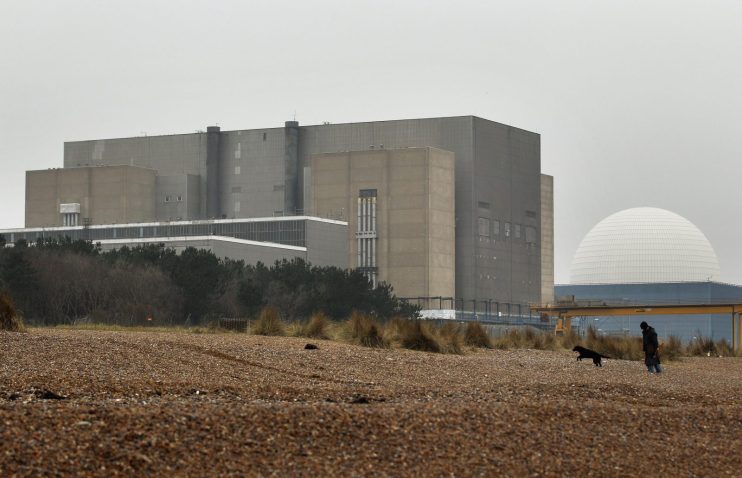Government provides Sizewell C nuclear plant with £100m investment boost

The government has allocated a further £100m for the Sizewell C project in Suffolk, hoping to lure further financing from private investors in the proposed nuclear power station.
If constructed, Sizewell C would power the equivalent of about six million homes, as well as support up to 10,000 jobs domestically.
While the project will still take at least a decade to reach operational status, business and energy secretary Kwasi Kwarteng believed the project was even more crucial following raised global gas prices, with flows increasingly vulnerable to geopolitical uncertainty between Russia and Ukraine.
He said: “In light of high global gas prices, we need to ensure Britain’s future energy supply is bolstered by reliable, affordable, low-carbon power that is generated in this country.
The minister also outlined that the project will ensure the country’s energy supplies would be secure and boost its transition to greener energy solutions, while also incentivising investors to back future projects.
Kwarteng explained: “New nuclear is not only an important part of our plans to ensure greater energy independence, but to create high-quality jobs and drive economic growth. The funding announced today will further support the development of Sizewell C during this important phase of negotiations as we seek to maximise investor confidence in this nationally significant project.”
Nuclear power currently makes up 21 per cent of the UK’s overall energy mix, but with multiple existing plants set for closure over the next 15 years, building new sites is key to maintaining the presence of nuclear power in domestic energy infrastructure.
The energy source also features prominently in the government’s ten-point plan to reach net zero carbon emissions, which it published ahead of the COP 26 climate conference in Glasgow.
EDF has an 80 per cent stake in the site, and the energy firm’s boss believed further investment was a fresh vote of confidence in the project.
Simone Rossi, chief executive of EDF Energy, said: “We’re very pleased that the government is showing its confidence in Sizewell C which, if approved, will lower energy costs for consumers and help to insulate the UK from global gas prices.”
Tom Greatrex, chief executive of the Nuclear Industry Association said: “Investment in new nuclear capacity is essential to us hitting net zero to ensure a solid foundation of reliable low-carbon power which will strengthen our energy security. This is not only an investment in the UK’s green energy future but also in jobs and skills right across the country.”
Negotiations between the government and Sizewell C project developer EDF started last year, and follow announced reforms to the country’s nuclear plans devised last year by Kwarteng.
“This is another big step forward for Sizewell C and a big vote of confidence in nuclear. It sends a clear signal from government to investors that it sees projects like Sizewell C as essential to our clean energy transition.
Kwarteng is looking to reduce China’s influence in key British energy projects through a regulated asset base (RAB) mechanism, which will front-load costs to consumers during the construction phase of future projects, and deepen the pool of private backers such as British pension strategies, insurers and institutional investors
RAB has been used to finance previous infrastructure projects such as the Thames Tideway Tunnel and Heathrow Terminal 5.
He hopes the move could potentially oust Chinese state-backed company CGN from the Sizewell C development, where it has a 2- per cent stake, and future nuclear power projects.
Sizewell C is identical in design to the Hinkley Point C development, which is further along in development and could be operational by the end of the decade.
Meanwhile, Rolls-Royce is now encouraging bids from regions in England and Wales to host the manufacturing site for its small, modular reactors.
The government has made up to £1.7bn of new direct funding available at the spending review for developing a large-scale nuclear project to the point of a final investment decision this Parliament.